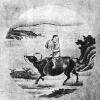Sign in to follow this
Followers
0

What is desire? What is craving?
By
Lucky7Strikes, in General Discussion

By
Lucky7Strikes, in General Discussion